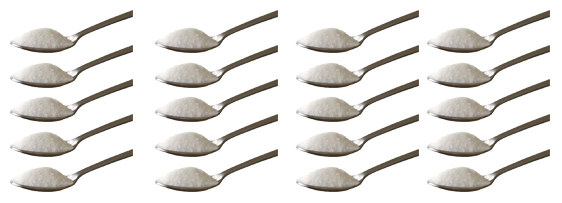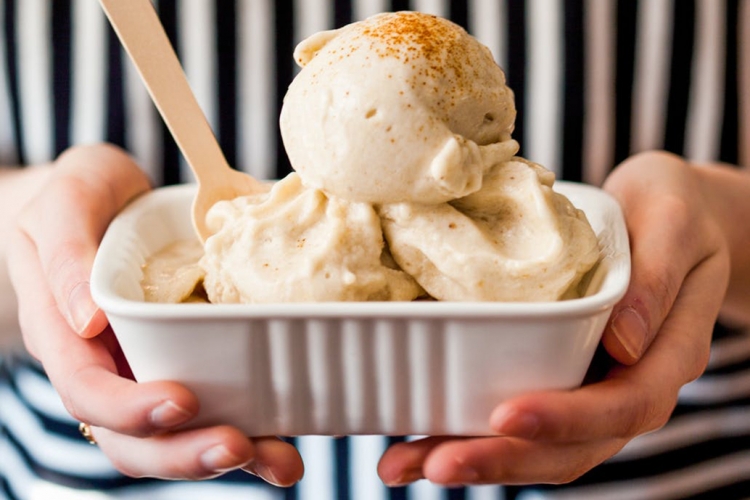A Beautiful Day (or The Psychology of Sugar Cravings)
Close your eyes. (You may need a friend to read to you.) Visualize a great day. You just had an excellent night’s sleep, the sun is shining, and you have incredible energy. You eat lunch in the breeze, and you can taste the buttery earthiness of the sautéed chanterelle mushrooms, the complicated sweet/acid burst of garden-grown tomatoes, the soft spice of cold mint tea. You don’t feel overly full and you’re feeling fit and in shape. You’re not getting sleepy, and you’re not craving anything else. And your wallet is full of money. Is this all starting to seem silly?
Well it’s not. This day is in your grasp. All you have to do is stop eating this:

This photo illustrates the over 20 teaspoons of refined sugar the average American consumes per day, either overtly in soda or desserts, or covertly in a myriad of packaged food-like substances. This stuff is weighing you down. It’s weighing down your ability to enjoy the subtleties of food, because it’s masking flavors in a veil of bland sweetness. Studies show that excess refined sugar’s roller-coaster effect on your insulin levels saps your energy throughout the day and contributes to bad sleep at night. Eating too much refined sugar puts you at risk for a list of diseases too numerous for a short article, but includes cancer and heart disease. And excess sugar is the major factor in the extra pounds you’re carrying around, which can lead to diabetes. The only thing refined sugar doesn’t weigh down is your wallet, because you’re emptying it at the doctor’s office.
If you’re eating this much sugar, you may be dependent on it. To overcome this dependence, try this:
Maintain physical distance
Go to your fridge, cupboard, and desk drawer, and throw out anything with added sugar like soda, snacks, and candy. Do it fast, like yanking a band-aid.
Maintain emotional distance
To ease the transition out of emotional attachment to sugar, replace it with something. The best thing is muscle food—real food that probably doesn’t come in a package. Eat a full breakfast, and whenever you want sugar throughout the day, eat nuts or fruit instead.
Recognize it as a process, not an event
Eventually you will become unattached from sugar and stop wanting it, but not on the first day. Don’t think you’ve totally failed if you eat a little sugar. A little won’t kill you.
Seek support from authors, friends, and counselors
Other people have gone through this. Find them so they can educate you on strategy and encourage you through the difficult times.
Measure success
That which is measured, is managed. Keep a journal of your progress. Record weekly stats like your weight and waist size. Hang a before-photo on your fridge and take progress shots. Progress encourages more progress.




